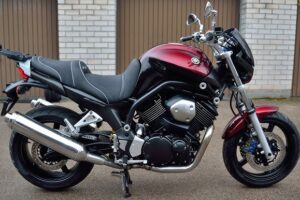Nasal sprays are commonly used to relieve symptoms associated with a blocked nose and sinus congestion. They are an easy-to-use, effective solution for clearing up nasal passages and reducing inflammation, providing instant relief to those suffering from nasal issues. In this blog, we will explore how nasal sprays work, their benefits, the different types available, and how they can be particularly useful for children, as well as their role in sinus management.
What Is a Nasal Spray?
A nasal spray is a medical device that delivers a fine mist or aerosol directly into the nasal passages. The mist can contain various medications designed to treat conditions such as sinusitis, allergies, colds, and other nasal issues. Nasal sprays come in different formulations, including saline-based, decongestants, corticosteroids, and antihistamines. Each type targets specific causes of nasal congestion and offers relief from symptoms.
The most common reason people use nasal sprays is to address a blocked nose caused by the inflammation of the nasal passages. This can occur due to various reasons, including infections like the common cold, sinus infections (sinusitis), allergies, or environmental irritants. Nasal sprays are often the first line of defense against these symptoms.
Types of Nasal Sprays
There are several types of nasal sprays available, each serving a distinct purpose:
- Saline Nasal Spray:
Saline nasal sprays are among the most widely used nasal products. These sprays contain a saltwater solution that helps to hydrate the nasal passages, clear out mucus, and relieve nasal dryness. Saline sprays are gentle and safe for children and adults alike and can be used regularly for nasal hygiene and to relieve congestion caused by dry air, colds, or allergies. - Decongestant Nasal Spray:
Decongestant nasal sprays, such as oxymetazoline and phenylephrine, work by constricting the blood vessels in the nasal passages, which reduces swelling and opens up the airways. These sprays provide rapid relief for a blocked nose and can be especially helpful during a cold or allergy flare-up. However, they should not be used for more than a few days as prolonged use can lead to a condition known as “rebound congestion,” where nasal congestion worsens once the medication is stopped. - Steroid Nasal Spray:
Steroid nasal sprays, like fluticasone and mometasone, are designed to treat inflammation in the nasal passages. These sprays are typically used to manage chronic sinus issues, such as persistent sinusitis or allergic rhinitis. Steroid sprays work by reducing swelling and irritation in the nasal lining, helping to prevent and treat symptoms over the long term. - Antihistamine Nasal Spray:
Antihistamine nasal sprays are commonly used to treat allergic rhinitis. They work by blocking the action of histamine, a substance produced by the body in response to allergens. These sprays help reduce symptoms like sneezing, itching, and nasal congestion caused by allergies.
Nasal Spray for Kids: Is It Safe?
Many parents wonder whether nasal sprays are safe for their children, especially when dealing with common issues like a blocked nose or sinus congestion. The answer depends on the type of nasal spray and the age of the child.
- Kids Nasal Spray – Saline Spray:
Saline nasal sprays are safe for children, including infants. They are a non-medicated option that can help alleviate a blocked nose and help children breathe more comfortably. Pediatricians often recommend saline nasal sprays for younger children because they are gentle and effective at clearing out mucus without the risk of side effects associated with medicated nasal sprays. - Kids Nasal Spray – Decongestants:
Decongestant nasal sprays should be used with caution in children. Over-the-counter decongestant nasal sprays are typically not recommended for children under the age of 6 due to the potential for side effects and the risk of misuse. If a child is suffering from a blocked nose or sinus congestion, it is best to consult with a pediatrician before using any medicated nasal spray. - Kids Nasal Spray – Steroid Nasal Spray:
Steroid nasal sprays can be used in children but should only be prescribed by a healthcare professional for long-term use, typically for conditions like allergic rhinitis or chronic sinusitis. These sprays help reduce inflammation and swelling in the nasal passages, making it easier for children to breathe. However, they are not recommended for short-term use or for younger children without medical supervision.
The Role of Nasal Spray in Managing Sinus Issues
Sinus problems, or sinusitis, occur when the sinus cavities become inflamed or infected. This condition often leads to symptoms like facial pain, pressure, and a blocked nose. Nasal sprays, especially steroid-based ones, can play an important role in managing sinus issues and preventing further complications.
Nasal sprays can reduce inflammation in the nasal passages, helping to open up blocked sinuses and allow for better airflow. This can alleviate the discomfort associated with sinus infections, reduce facial pressure, and help clear out mucus. For individuals with chronic sinusitis, nasal sprays can be a key part of long-term treatment plans aimed at reducing flare-ups and preventing sinus infections.
Conclusion
Nasal sprays are an incredibly effective tool in managing a range of nasal issues, from a blocked nose to more complex conditions like sinus infections. Whether you’re dealing with a common cold, sinus rinse problems, or seasonal allergies, there’s a nasal spray solution to help you breathe easier. Kids nasal spray options, particularly saline sprays, offer a safe and gentle way to relieve congestion in children without worrying about side effects. However, it’s essential to choose the right type of spray and consult a healthcare provider, especially when dealing with children or chronic sinus issues. Nasal sprays can provide quick relief and long-term solutions to improve quality of life for those suffering from blocked nose and sinus conditions.






